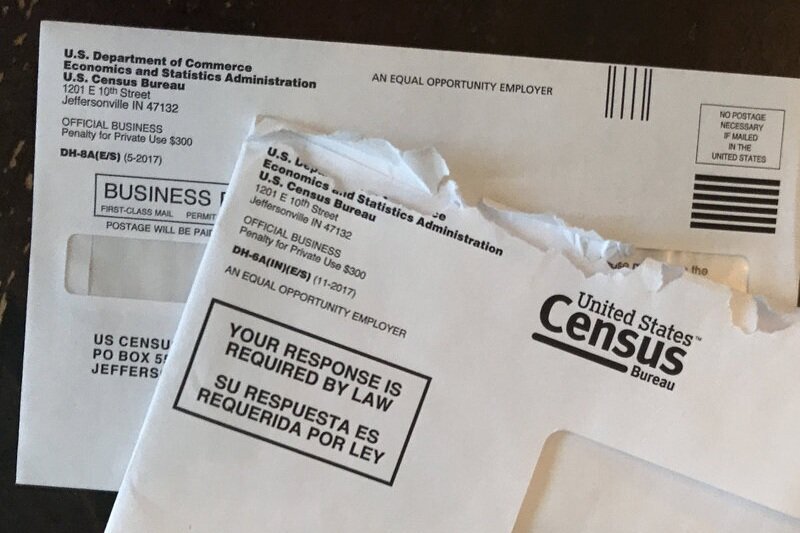Completing the Census as Community Care
Community care in a time of social distancing is hard. This disconnect can feel especially isolating when our communities need support, need to come together, need to organize and advocate for each other. Now, we must find new ways to do so. What I’ve found most inspiring are the mutual aid efforts, the calls for action to demand all people are protected in this vulnerable time, the organizers who look at our current paradigm shift and don’t give into the hopelessness inherent in isolation but instead find new ways to connect to and bring power to vulnerable communities.
There are a number of pressing concerns and issues weighing on all of us at this time, and as we maintain our distance and work to protect each other, I want to make sure we don’t forget about the 2020 Census. The census decides how billions of dollars in federal funding are allocated each year. This is money that funds schools, roads, public transportation, emergency services, affordable housing, healthcare, and so much more.
Communities most likely to be undercounted are the communities that need these resources the most; an undercount will only exacerbate economic, racial, and gender disparities.
Political power is also allocated through the census. In fact, Minnesota is projected to lose our 8th Congressional Seat because of our slowing population growth compared to other states. This will impact every Minnesotan, not only those in the 8th District. If we are undercounted, we will definitely lose this seat, which means less political power for Minnesotans overall. Our state will be redistricted to compensate for this loss, meaning our districts will cover larger swathes of people, lessening our communities’ political powers.
Of course, while there are many reasons to fill out the census, the form itself is often met with great suspicion. These concerns are valid and legitimate and based on real historical trauma. For Muslim communities and communities of color, it is important we remain critical and skeptical of anything that could potentially cause us harm. In late 2019, Reviving Sisterhood released a survey asking our constituency about your biggest concerns surrounding the census. The number one concern was how individual information is used.
Your individual data gathered by the census—name, phone number, address, age, race/ethnicity—will be protected for 72 years. The data that comes out from the Census Bureau is aggregated, meaning data will be compiled and summarized so there is no way anyone can look and find your personal information. If there is a chance that any data would be individually identifiable, it will not be disaggregated into data subsets like race.
No data collected can be used against you in a court of law. Landlords, police, and ICE do not have access to your information. Your census responses cannot be subpoenaed nor can your data be accessed through a Freedom of Information Act request. Title 13 of the U.S. Code governs how the census can use your data and prohibits census data from being used for anything other than the creation of datasets. Section 8c of Title 13 goes further and prohibits the use of statistical datasets produced by the Census Bureau to be used for the “detriment” of any individual.
If you’re concerned about your private information, when you fill out the form you can use ‘Person 1,’ ‘Person 2,’ in lieu of using any real names of you and your family members. You can also use a community center like a library or masjid that’s in your neighborhood as your address if you’d prefer; however, doing so will result in your address showing up as having not responded, and a Census Bureau worker will visit your home.
Ultimately, while these concerns are valid, we believe that the census is a simple and powerful way for our communities to take back our power.
Ten minutes of your time will decide the next ten years of funding, resources, and political power.
Beyond government funding, census data is used by businesses to decide where to open—if your community lacks close access to grocery stores or sufficient job opportunities, ensuring your community is counted is that much more important.
As we work to build connections and support each other, let’s remember to take ten minutes (or less!) to fill out the 2020 Census and ensure our communities are counted and resourced for the next ten years. We won’t have a chance to get it right again until 2030. As of today, you should have received a letter in the mail from the U.S. Census Bureau that looks like this:
The letter contains an address specific code that you can input when you go to my2020census.gov. You can also enter in your address instead or, as mentioned above, the address of a community center (just note that your address won’t have a response and the Census Bureau will contact you). If you have further concerns, please don’t hesitate to reach out with questions.
Reviving Sisterhood is a Questionnaire Assistance Center (QAC), and we are here to help with filling out your census form. Contact us at contact@revivingsisterhood.org or at (612) 568-8091.
If you need language assistance, please let us know in your email or phone call.
Stay safe and healthy!


